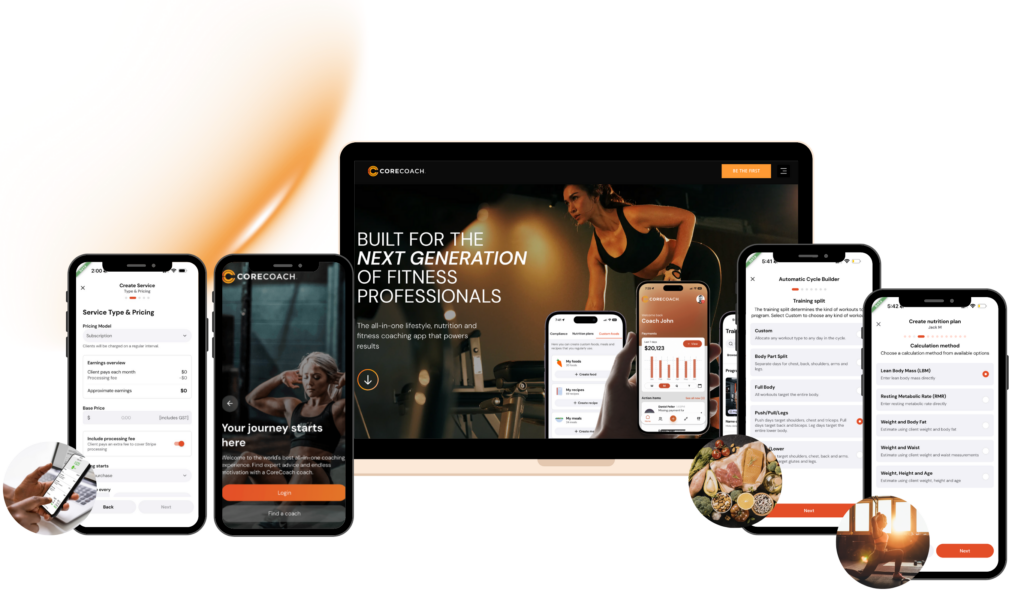
Written by Kim Leggett (Clean Health Online Master Coach)
STRESS – it’s everywhere and in fact, gen pop clients are often perpetually stressed out. They work long hours, look after a family, don’t get enough sleep, eat poorly, expose themselves to environmental toxins and stressors constantly, and this is all on top of the stress of not being happy with your own body. The stress of modern life is so overwhelming that our gen pop clients almost universally have adverse physiological effects resulting from chronic exposure to stress.
Unfortunately, 95% of coaches have no idea how to address stress – don’t be one of them!
Don’t be the coach that claims it is ‘out of their control’ or that they can’t help alleviate or manoeuvre that stress away for their client. You need to be smart in your approach and not ADD to the PROBLEM. If you smash a stressed-out person in the gym, you will not get results and as a coach, you not only can help your clients with stress, you must help your clients with stress if you want an epic transformation.
If you are looking to become a personal trainer who will change the lives of all clients you come into contact with in a positive way, click here to enrol into our Master Coach Program!
True, you cannot make your client’s stressors go away. You can’t control their family, their bills or their work. But with even just a tiny bit of knowledge about stress and how it works, you can make a dramatic change in your client’s life for the better.
Here are our Top Tips for De-Stressing Your Clients:
MODIFY TRAINING
Training is in itself a stressor on the body (mostly the good kind) but you don’t want to push your client into OVERTRAINING. Training in not only beneficial for your mental health – with studies showing it has positive impact on mood, anxiety and depression (3). As a coach you need to be able to identify the signs that your client needs to TAPER OFF their training and LOWER VOLUME.
ENCOURAGE PARASYMPATHETIC ACTIVITIES
This includes:
- Yoga
- Practicing controlled breathing
- Meditation
- Reading
– All of which helps get cortisol under control. Think of it as client ‘self care’ even if that mean getting a massage or going away for a break in nature – it will actually help your client reap positive returns in their results.
EAT WELL
We’ve said it before and we will say it again, a poor lifestyle and diet will reduce or eliminate the benefit of training, so adding more exercise before addressing these factors gets you nowhere. To achieve a fast transformation, you have to remove the barriers. Ensure your client is eating nutritious whole foods, is well hydrated, digestion is optimal and is getting enough fibre and micronutrients into their diet.
GET ADEQUATE SLEEP
Everyone we should care about is the quality of our clients’ sleep. Eight hours of deep, uninterrupted sleep is far more recuperative than eight hours of tossing, turning and toilet breaks. When discussing sleep with your clients, it’s important to address questions of quality, not just quantity.
Recent studies show that sleep deprivation and comparing five and a half hours of sleep versus eight and a half per night – that the group who was sleep deprived lost nearly half their mass from lean body mass while the group that was non sleep deprived and had plenty of sleep lost the vast majority of their body mass from fat tissue which is a BIG difference. Sleep deprivation increases Ghrelin (aka, our hunger hormone), decreases energy expenditure and negatively impacts our recovery – so we need to ensure we are getting enough quality hours of sleep.
When it comes to managing stress, we’re more specifically talking about managing cortisol, the stress hormone. Cortisol is doing the majority of the heavy lifting when we talk about the impacts of chronic stress and spending too long in a sympathetic state. Basically, everything we care about in the body is impacted one way or another by cortisol – so getting on top of this and prioritising DE-STRESS techniques is vital for great client results!
References:
- Clean Health Fitness Institute. (2020). Fat Loss Fundamentals. CHFI.
- Norton, L. (PhD). (2020). Science of Nutrition. Clean Health Fitness Institute.
- Sharma, A., Madaan, V., & Petty, F. D. (2006). Exercise for mental health. Primary care companion to the Journal of clinical psychiatry, 8(2), 106. Accessed 5th November. Retrieved from https://doi.org/10.4088/pcc.v08n0208a






